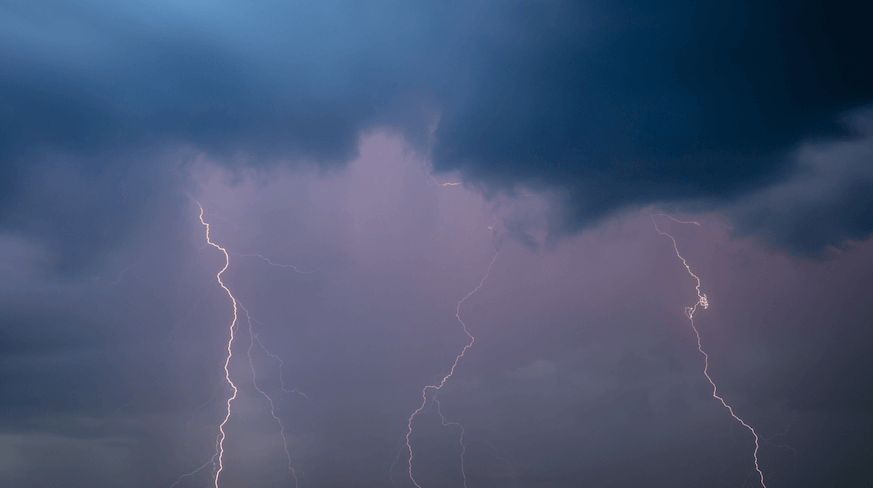August in New England means thunderstorms, and with the continuing effects of global warming, we are seeing an increase in their intensity. You should be aware of three severe weather conditions commonly associated with these thunderstorms: flash floods, lightning, and hail, to protect your family and your valuables.
Flash Floods:
Flash floods are sudden and rapid floods in low-lying areas like creeks, rivers, and small streams. These floods are often triggered by heavy rainfall and can occur at any time, so it is essential to stay alert. If caught in a flash flood, move to higher ground immediately. Do not try to drive through flooded roads, and do not attempt to walk across a flooded area. The force of the water can quickly sweep you away, causing severe injury or death.
In recent years, flash floods have become more frequent and severe in many parts of New England. This can be attributed to changes in weather patterns influenced by global warming. The increased rainfall can overwhelm drainage systems and natural waterways, leading to rapid and dangerous flooding. To stay informed and prepared, it is vital to monitor weather reports and be alert for flash flood warnings. Having emergency supplies, such as water, non-perishable food, a flashlight, and a first aid kit, readily accessible is crucial during these situations.
Additionally, planning an evacuation route and practicing it with your family is wise. Knowing the safest way to reach higher ground can significantly improve your family’s safety during a flash flood. Moreover, avoiding camping or parking near streams or rivers during the rainy season can prevent potential disasters.
Lightning:
Lightning is one of New England’s deadliest weather phenomena and is more prevalent during the summer months. Lightning is caused when lightning bolts transfer electric charges into the atmosphere. Lightning can strike from ten miles away; therefore, you are within striking distance if you hear thunder. When lightning is present, seek shelter immediately. Avoid open areas like fields, golf courses, or beaches if caught outside.
Despite being a fascinating natural phenomenon, lightning severely threatens human life. Being informed about lightning safety precautions can save lives. Remember, if you can hear thunder, you are close enough to be struck by lightning. As such, staying indoors and away from windows during thunderstorms is crucial. Moreover, avoiding taking a bath or shower during a storm is essential, as metal pipes can conduct electricity. Unplugging appliances and electronics can also prevent damage from potential power surges caused by lightning strikes.
Moving away from open areas and seeking shelter in a sturdy building is the safest course of action for those who find themselves outside during a thunderstorm. Enclosed structures with wiring and plumbing protect against lightning strikes, ensuring your safety during a thunderstorm.
Hail:
Hail is a solid form of precipitation that can be as small as pebbles or as large as baseballs. Hail is formed when thunderstorm updrafts carry water droplets high into the atmosphere, where they freeze into balls. Hail can cause significant damage to cars, roofs, and crops. In New England, hail is less common than in other parts of the country, but it does occur.
Despite its infrequent occurrence in New England, hail can still be a concern during certain thunderstorms. If you drive during a hailstorm, you must pull over to a safe place and stay inside your vehicle. Hailstones can shatter windshields and windows, leading to severe injuries if caught outside your car’s protection. Furthermore, it’s advisable not to use your phone unless it is an emergency, as the risk of lightning striking nearby is higher during hailstorms.
Whenever possible, parking your car in a covered area during a hailstorm can prevent damage to your vehicle. If you cannot access covered parking, covering your windows with thick blankets or pillows can be a temporary shield against hailstones. While hailstorms may not be as common as other severe weather conditions in New England, these precautions can minimize potential damage and keep you safe during such events.
In summary, severe weather conditions like thunderstorms, lightning, and hail can cause significant damage to your property and put you and your loved ones at risk. As global warming continues to impact weather patterns, it is essential to remain vigilant and prepared for these weather events. Remember to stay alert when you hear thunder or see dark clouds forming, keep an emergency kit readily available, and follow safety precautions to protect yourself and your belongings.


